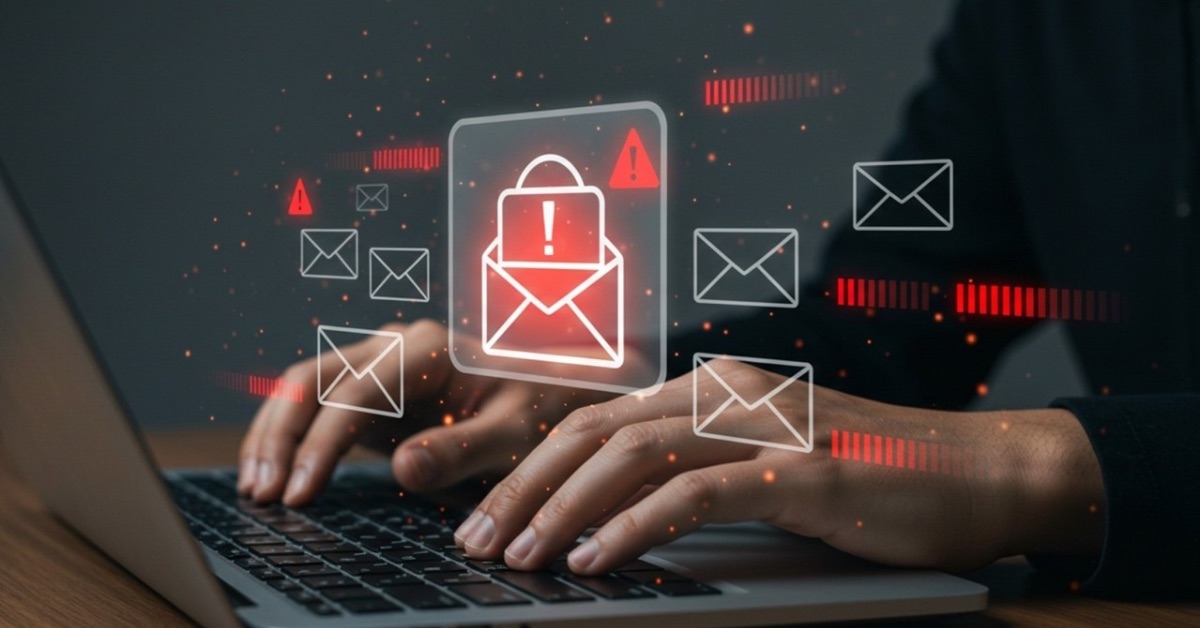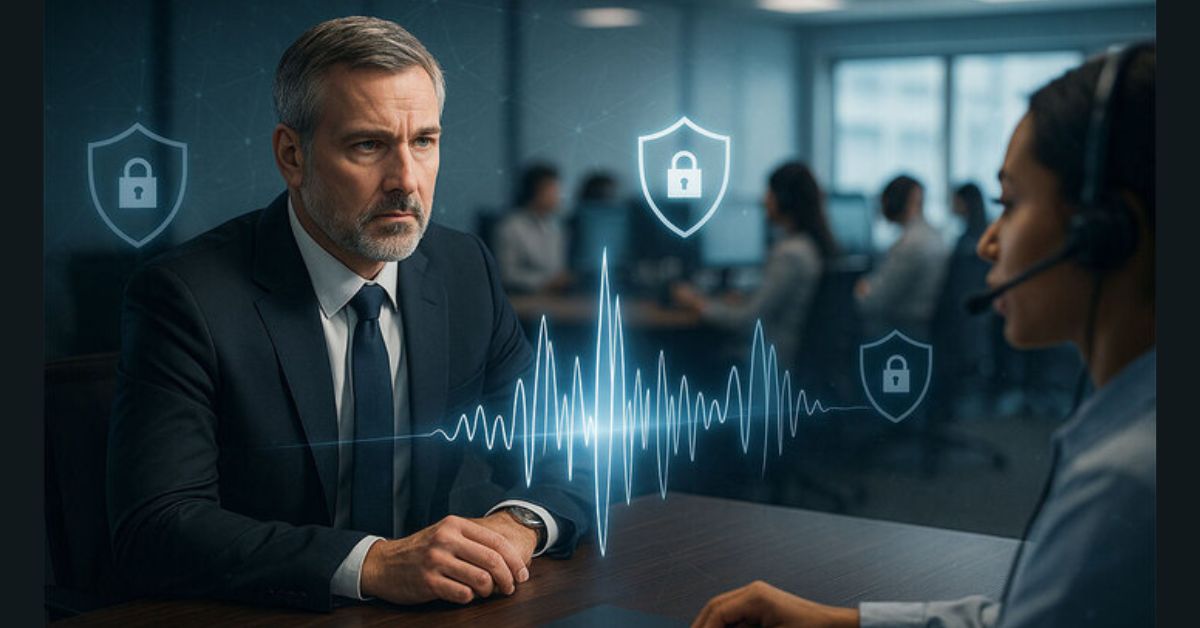The Risks of Public Wi-Fi and How to Stay Safe
June 20, 2023, 12 min read
There’s a good chance you’ve used a public Wi-Fi hotspot, whether you work remotely, travel regularly, or enjoy staying connected no matter where you are.They can be found in just about any public space, including airports, dining establishments, coffee shops, libraries, public transportation, and hotel rooms. Accessing online accounts, completing work, and checking emails are all much more convenient with these free Wi-Fi hotspots. However, you may still be at risk of cyberattacks because these networks aren’t foolproof.This article will teach you all you need to know about the risks of public wi-fi and how to stay safe.
Why Public Wi-Fi Can Be a Cyber Playground
Picture this: You’re at your favorite coffee shop, sipping on an iced latte while casually browsing on your phone. You’re connected to free Wi-Fi, and life’s good. But have you ever stopped to think about the risks you’re taking every time you log on to a public Wi-Fi network?
Public Wi-Fi networks are like a digital playground for cybercriminals. They’re accessible, unsecured, and full of potential victims oblivious to the threats. These hotspots don’t require authentication to establish a network connection, providing an easy opportunity for hackers to access your device and personal information.
Think of it as leaving your house with the door wide open. Anyone could walk in. That’s essentially what you’re doing with your digital data when you connect to public Wi-Fi without taking precautions. It’s not just about risking those cute selfies; it’s about protecting your sensitive data from getting into the wrong hands.
And it’s not just about malicious strangers. Sometimes, the risks come from the network itself. Unsecured Wi-Fi could be a front for data collection schemes, where your browsing habits, personal information, and even your login credentials are up for grabs.
Why Public Wi-Fi Can Be Risky?
A recent survey by Forbes found that people use public Wi-Fi for a wide variety of reasons, including: when they have no other option; to check their social media accounts; to make calls using messaging and calling apps like WhatsApp and FaceTime; while abroad; to conserve cell data; to watch online videos on sites like YouTube and Netflix; to work remotely; to play online games; to conduct financial transactions online; and to study.
This demonstrates the importance of being connected at all times and the widespread use of public Wi-Fi for personal and professional purposes. Only 20% of people who have taken the survey admitted to doing financial transactions using public Wi-Fi. It’s arguable whether this is due to security worries about users’ personal information being hacked or stolen. Regardless, if you don’t take the necessary safeguards, using public Wi-Fi for any sensitive information is risky.
Types of Risks Associated with Public Wi-Fi
Unfortunately, there is a great deal of dangers associated with using public Wi-Fi. The security on public Wi-Fi is usually low or nonexistent, even though business owners may believe they are providing a beneficial service to their clients. If you want to know more about the dangers of using public Wi-Fi, read on.
Attacks involving a “Man in the Middle”
A man-in-the-middle (MITM) assault is one of the most popular types of attack on such networks. Eavesdropping is the essence of a man-in-the-middle (MITM) attack. Data is transmitted from one device (the client) to another (the server) when a computer connects to the internet. Attackers can exploit security flaws to “read” this data as it travels from device to server. Thus, the previously secret information is no longer secret. Phishing emails are another common method of launching man-in-the-middle attacks. They’ll send you emails that look like they came from a legitimate company or organization to get you to provide sensitive data.
Networks without Encryption
Encrypted networks transform the data transmitted between your gadget and the wireless access point into an unbreakable “secret code.” This ensures that the data is inaccessible without the proper access code. Encryption is typically disabled by default on Wi-Fi routers and must be enabled during network setup. A malicious actor can more easily intercept your data and utilize it in MITM attacks if you connect to a network that does not use encryption. There is no surefire method to know if the public Wi-Fi network you wish to use has been encrypted.
Dissemination of Malware
Software flaws also provide attackers with opportunities to secretly install malware on your system. A software vulnerability is a flaw or security risk in an application or system. This hole can be exploited by malicious actors who create programs designed to take advantage of it by injecting malware onto your device.
Snooping and Sniffing via Wi-Fi
Sniffing and snooping on Wi-Fi networks entails doing just what the name implies. To eavesdrop on Wi-Fi signals, cybercriminals can purchase specialized software kits and even equipment. If an attacker employs this method, they may be able to see every website you’ve ever visited (together with any data you entered on those pages), steal your login credentials, and even take over your entire browsing session.
Dangerous Concentrations
Rogue access points, often known as malicious hotspots, deceive users into joining a fake network by using a seemingly valid identity. Guests at the Goodnight Inn may wish to utilize the hotel’s Wi-Fi throughout their stay. If you click on “GoodNyte Inn,” you might assume you’ve made the right choice, but you haven’t. (The N is capitalized) Instead, you’ve joined a malicious hotspot where hackers can access your data.
How to Stay Safe on Public Wi-Fi: Tips and Best Practices
Online, you are vulnerable to the actions of bad people. Here are some things to keep in mind if you have to use a public Wi-Fi network.
Since many stores and libraries have been closed because of the Coronavirus outbreak, many of us have resorted to spending more time online. Therefore, we might have to rely on free, open Wi-Fi to access the web. The state’s top privacy officer suggests the following precautions for anyone who must use a public Wi-Fi network.
Make Sure You’re Connected To The Right Network
Verify that you are joining the correct network. Some malicious actors will deliberately build up networks with innocuous-sounding names to trick you into connecting to a surveillance network. This means that the hacker will be able to steal your information if you enter your login credentials or passwords into websites. To avoid this, be sure to thoroughly study the network’s name and verify its legitimacy by consulting either an employee or the physical location’s signage.
Well-known networks, like those run by popular coffee chains, are probably safer to utilize because customers know the corporation behind them. When using public Wi-Fi, it’s best to stick with trusted networks rather than any random free ones that pop up on your phone.
Disable The Automatic Connection
Smartphones, computers, and tablets, among others, often have their connectivity enabled by default. This option facilitates quick network connection on your devices. While this is perfectly secure when connecting to known and trustworthy networks, it also poses a risk when connecting potentially vulnerable devices. Disabling it is as simple as going into your device’s settings. If you are traveling to an unfamiliar location, it is especially important to disable these features. If you want to be extra cautious after utilizing public Wi-Fi, you can select “forget network” when you’re done.
Keep An Eye On Your Bluetooth When You’re Out And About
Hackers can hunt for open Bluetooth signals to get access to your devices because of the widespread use of this technology for inter-device communication. When visiting a strange place, it’s a good idea to disable this feature on your phone and other electronic gadgets.
Disable File Sharing
If you’re using a public Wi-Fi network, don’t upload or download large files. Depending on your operating system, you can disable file sharing in the settings menu. You should disable any file-sharing functions, and AirDrop is one such function. When connecting to a new public network for the first time, some operating systems, like Windows/PC, automatically disable file-sharing by selecting the “public” option.
Join A Virtual Private Network
Think about getting a Virtual Private Network (VPN) for your gadget. When using public Wi-Fi, a virtual private network (VPN) is the safest way to protect your online privacy. It creates an encrypted “tunnel” around your data as it travels to and from your device, hiding it from prying eyes on the network.
The FBI Issues A Warning Against Https-Encrypted Websites
When it comes to websites, the FBI has issued a warning(link is external) about those that begin with “https.” The “https” protocol and the associated lock emblem are designed to reassure users that their data is secure while being transmitted over the Internet. However, today’s cybercriminals count on people being gullible enough to visit malicious websites by disguising them as secure because they use HTTPS.
The FBI Suggests:
- Do not accept an email’s contents at face value, but rather investigate its true purpose.
- If you receive an email with a link from someone you know but suspect it might be malicious, you should contact them directly to make sure. If you receive a strange email, do not respond to it.
- Verify that the link does not contain any typos or incorrect domains (such as a “.gov” address that ends in a “.com” one).
- Just because a website has a lock icon or “https” in the address bar does not mean you can trust it.
- It is not suggested that you access the private files.
Accessing financial accounts or other sensitive information like social security numbers on a public network is not advised, VPN or not. Risk exists even in publicly accessible, password-protected networks. If you absolutely must use public Wi-Fi to access these accounts, proceed with caution. Consider using your phone’s hotspot feature instead of using your data plan for banking transactions.
Choose Secured Wi-Fi Networks
Secured and unsecured public Wi-Fi networks are the two primary categories.
Use encrypted public networks wherever possible. An unsecured network does not require any sort of authentication to join. Before being allowed access to a secure network, users are typically asked to accept terms and conditions, create an account, or provide a password.
Never Disable Your Firewall
Keep your laptop’s firewall on whenever you’re connected to a public Wi-Fi network. A firewall creates an impenetrable barrier between your computer and malicious software. Because of alerts and prompts, users may turn off Windows’ firewall and then forget about it. It can be restarted by going to the “System and Security” section of the Control Panel and clicking the “Windows Firewall” icon. On a Mac, you can activate the firewall by clicking the “System Preferences” menu, then “Security & Privacy,” and finally the “Firewall” tab.
Install an Anti-malware Programme
Also, update your laptop’s anti-virus software to the most recent version. Using an antivirus program can help keep your data safe when connecting to a public Wi-Fi network by scanning downloaded files for malicious software. If any malicious software or known viruses are downloaded to your device, or if your system is under attack or suspicious activities, you will receive a warning.
Apply Two-factor or Multi-factor Authentication (if possible)
When entering sensitive information into a website, use multi-factor authentication (MFA). This implies you have an extra layer of security in the form of a second verification code (sent to your phone, delivered by an app, or provided by a physical key). A hacker can therefore not access your accounts even if they obtain your username and password unless they also obtain an authentication code.
Always Remember Where You Put Your Gadgets
Never trust anyone with your electronic devices in a public area or vehicle. You might still be a victim of theft or eavesdropping on a Wi-Fi network, no matter how careful you are. Keep your wits about you and your awareness sharp.
Alternatives to Public Wi-Fi
Let’s face it, public Wi-Fi is like that fast food joint everyone warns you about but you can’t resist because it’s oh-so convenient. But what if I told you that you could have your cake and eat it too, without the side of cybersecurity threats? Cue the drum roll as we dive into the world of alternatives to public Wi-Fi that are not just safe, but also super trendy.
Personal Hotspots: Your Internet BFF
First up on our list is the personal hotspot. This little superhero allows you to create your own Wi-Fi network using your smartphone’s data plan. It’s like having a private café with unlimited Wi-Fi all to yourself. So, whether you’re in a park or on a train, just whip out your phone, and voila, you’re connected!
But wait, it’s not just about convenience. Personal hotspots are also secure. Since the network is yours, you’re not sharing it with Tom, Dick, and Harry, along with their potentially dubious internet activities. Remember to keep your hotspot password-protected – it’s the digital equivalent of not sharing your fries.
Virtual Private Networks: The Cloak of Invisibility
Next, let’s talk about Virtual Private Networks, or VPNs as the cool kids call them. A VPN is like a secret tunnel for your internet connection. It hides your IP address and encrypts your data, making you virtually untraceable. You could be sipping espresso at a café while your internet presence says you’re chilling in Bali.
Using a VPN is super easy – many apps are out there. Download one, set it up, and you’re ready. It’s a must-have for any digital nomad or anyone who just wants to keep their online life on the down low.
Wi-Fi Dongles and Portable Modems: Internet on the Go
And then we have the unsung heroes of portable internet – Wi-Fi dongles and portable modems. These gadgets may not win any beauty contests, but they’re your golden ticket to secure high-speed internet anywhere you can get a cellular signal.
Just plug in a dongle to your laptop’s USB port or fire up a portable modem, and you’re the king of your internet castle. No need to scout for Wi-Fi signals or ask for the Wi-Fi password in broken sign language. Plus, they have their own security features that’ll keep your data safer than a squirrel’s nut stash in winter.
So there you have it, folks. The next time you’re about to tap into that sketchy public Wi-Fi, remember that you’ve got some trendy and secure alternatives. Whether you choose a personal hotspot, a VPN, or a trusty Wi-Fi dongle, you can surf the web confidently and style. Stay connected, stay secure, and keep it trendy!
What to Do If Your Data Is Compromised on Public Wi-Fi?
Determine What Information was Compromised and Look for Fixes
Sometimes, businesses don’t tell customers whose information was compromised or what information was obtained. While they cannot confirm whether or not your personal information was compromised, there is no reason to delay taking action. You should verify with the company and inquire what information is included if you have received a notification from the company suggesting that your information may have been disclosed or perhaps you saw information about a breach in the media. The most typical types of stolen private information are:
- Name
- Password
- Email Address
- Phone
- Data Relating to Credit Cards
- Social Security Number
After a privacy breach, it may be time-consuming and/or expensive to make the necessary adjustments and/or confirm that the data is secure. Prioritize your efforts based on the sensitivity of the data at risk, and stay in touch with the affected organization by phone or online for further security updates.
Immediately Change Any Exposed Credentials
You should immediately update your password and email address if you have any reason to believe they may have been compromised. Changing all your old logins and practicing excellent password hygiene is crucial if you have previously reused your password on many sites. A “strong” password is recommended. We’ll explain what that means in a little. It is recommended that users use a variety of passwords and change them frequently (every three to six months).
The practice of trying to keep track of many passwords is an antiquated one at this point in the history of online security. Because of this, we also advise that you make use of a password manager.
Initiate Two-factor Authentication by Signing up for It
If the service offers it, enable “two-factor authentication” on all of your online accounts. You may add an extra layer of security to your online accounts by enabling two-factor authentication, sometimes known as “two-step verification” or “2FA” for short.
Check your Balances
Hackers’ techniques have become increasingly sophisticated in recent years. Many online services, social media profiles, and memberships can be quickly and easily checked against a single set of exposed credentials. If you use the same password for many sites, hackers can rapidly access your profile, which may include your email, phone number, and even your home address.
Safeguard Your Financial Anonymity
If you suspect a data breach exposed your payment information, contact your card issuer immediately and request a replacement card. Card locking prevents further use of a compromised card’s number for purchases while a new card’s use of a different number allows you to continue making purchases as usual.
Conclusion
While many people appreciate the convenience of public Wi-Fi, it comes with security risks that could jeopardize their professional or personal information. Knowing the risks and taking measures to protect data is crucial as more and more people rely on public Wi-Fi networks. Our survey found that many people have had their personal information stolen or somewhat exposed when using a public Wi-Fi network. Given these dangers, it’s sensible to consider getting a virtual private network (VPN) to encrypt one’s internet traffic and hide one’s identity and data.




























